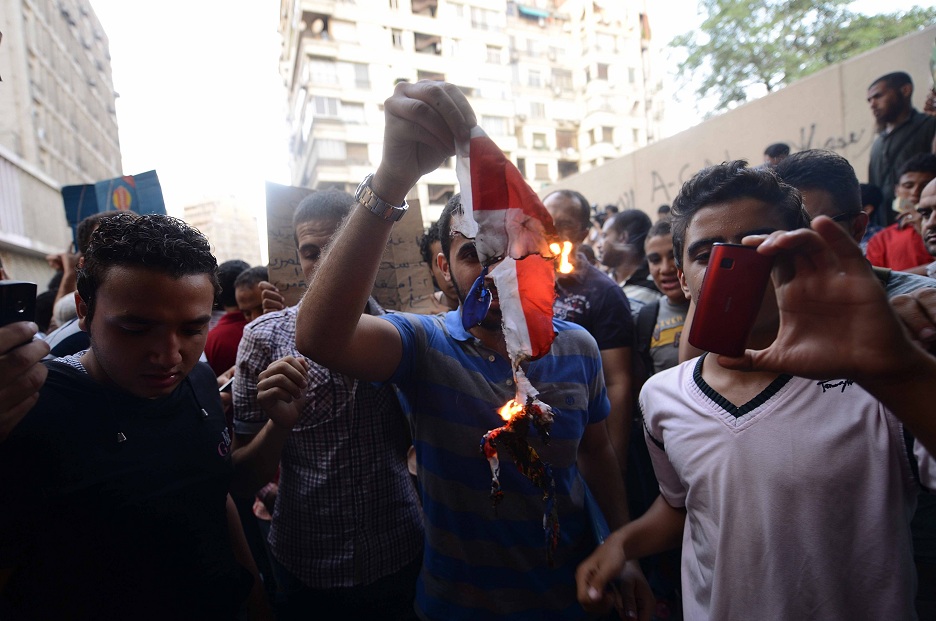
(AFP PHOTO / TAREK EL-GABASS)
The Sunday trial of deposed president Mohamed Morsi for escaping from prison was postponed until 28 June, when witnesses are expected to conclude their testimony.
Held at the North Cairo Criminal Court, Morsi is facing trial along with 130 other defendants, including many prominent Muslim Brotherhood leaders, for escaping from Wadi El-Natrun Prison on 29 January 2011, during the opening days of the 25 January Revolution.
The charges relating to the prison break include damaging and setting fire to prison buildings, murder, attempted murder, and looting prison weapons depots at three separate Egyptian prisons.
Morsi’s co-defendants in the case include Brotherhood Supreme Guide Mohamed Badie, Freedom and Justice Party General Secretary Mohamed Beltagy, and controversial preacher Safwat Hegazy.
According to the prosecutions’ investigations, the prison break occurred when 800 foreigners affiliated with Hamas and Hezbollah entered Egypt from Gaza through tunnels with heavy armaments, RPGs and mortars, which they used against police and governmental installations in the eastern border area and killed several policemen.
They later moved in three groups to attack Wadi El-Natrun Prison in Beheira Governorate and Abou Zaabal and Al-Marg prisons in Cairo, according to the prosecution, which they successfully broke into, killed over 50 policemen and prisoners, and freed their fellow members and 20,000 prisoners. They also vandalised and stole police equipment, cars and arms and kidnapped four policemen.
Originally beginning 28 January, the trial has faced multiple delays.
Morsi is also the co-defendant in three other trials: inciting the killing of protestors during deadly clashes outside the presidential palace in December 2012, insulting the judiciary, and for espionage for working with foreign Islamist groups to create chaos in Egypt.
Morsi has been in custody since being ousted by the military on 3 July. Until his first appearance in court on 4 November, his place of detention was unknown.

